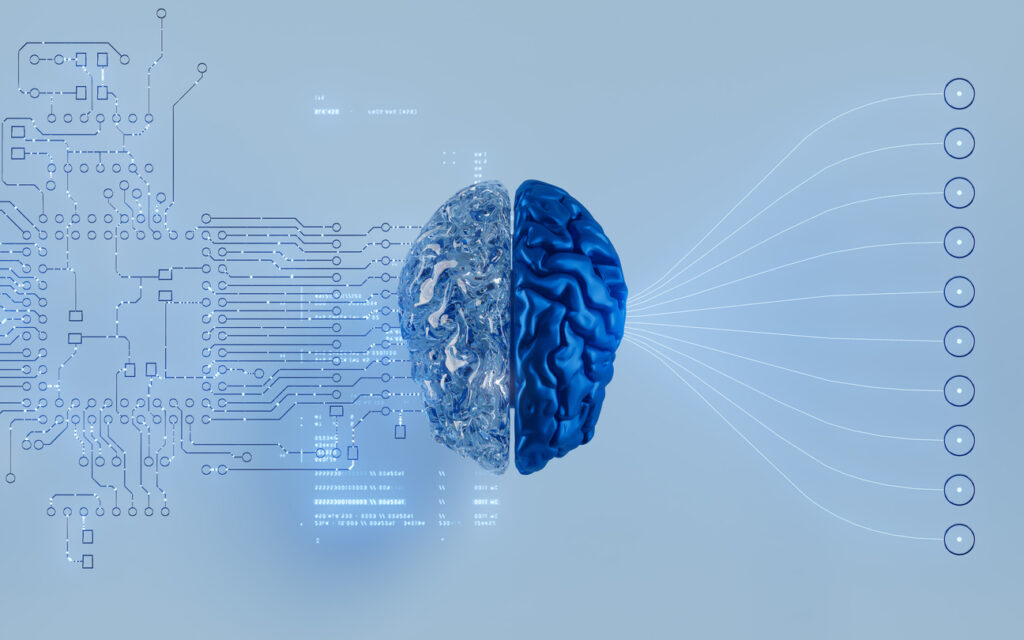
You Don’t Need Gen AI for Every Part of AI Search—Here’s Why
Sure, generative AI (Gen AI) has been the talk of the town lately, conjuring up mind-blowing text, images, and even music. But let’s not forget the unsung heroes of the AI world — the technologies that have been quietly improving our lives for years, making them more productive, personalized, and downright enjoyable. From the moment your smart alarm gently wakes you up to the time you ask your voice assistant to turn off the lights, AI is subtly enhancing your day:
- Your morning commute: AI-powered navigation apps like Google Maps analyze real-time traffic data to guide you on the fastest route, turning gridlock into a breeze.
- Your inbox: AI filters out spam, ensuring you only see the messages that matter, saving you from a deluge of unwanted emails.
- Your online shopping sprees: AI-powered recommendation engines on e-commerce sites suggest products you might actually like, transforming aimless browsing into a delightful discovery.
- Your financial security: AI algorithms tirelessly monitor transactions, flagging suspicious activity to protect you from fraud.

And AI’s impact extends beyond your personal life. It’s dramatically improving how businesses operate, from enhancing website functionality to streamlining supply chains:
- 24/7 Customer Support: AI-powered chatbots provide instant responses to customer queries, freeing up human agents for more complex tasks.
- Personalized Marketing Campaigns: AI helps businesses analyze customer data to deliver targeted marketing messages that truly resonate.
- Efficient Supply Chains: AI predicts demand, optimizes inventory, and streamlines logistics, ensuring products get where they need to be, when they need to be there.
- Data-Driven Financial Decisions: AI analyzes market trends and financial data, empowering businesses to make smarter investments and manage risk more effectively.
While generative AI is grabbing headlines, it’s essential to recognize the broader AI landscape. The global AI market is projected to reach a staggering $1.8 trillion in the next six years, and generative AI is just one piece of this massive pie.
In this blog, we’ll decode the diverse world of AI, exploring the various technologies that power search engines and enhance our digital experiences. We’ll uncover the unique functions and benefits of each AI type, empowering you to make informed decisions about the right tools for your needs.
Ready to explore the AI technologies that are shaping our world? Let’s dive in!
Understanding the Different Types of AI
AI is a broad field that includes all technologies designed to imitate human intelligence. AI is all about machines learning from data and making decisions based on that data. Within AI, there are a number of specialized branches, each helping to improve digital experiences.

- Machine Learning (ML) is the heart of AI. It involves algorithms that learn from experience patterns from huge amounts of data to predict or decide. By way of example, ML is what lets your favorite streaming service recommend the next show you should binge-watch based on what you’ve seen recently.
- Deep Learning is a subset of ML. It uses neural networks to analyze complex data. It’s ML on steroids–it recognizes patterns in images, sounds, and text exceptionally well.
- Generative AI is the current rock star of AI, gaining all the attention. It learns from existing data to produce new content, whether that’s text or images. Such technology powers everything from chatbots to creative content generation–but it is by no means a one-size-fits-all solution.
- Natural Language Processing (NLP) allows machines to understand human language. That’s why your virtual assistant understands your requests and why search engines interpret and answer any of your complex queries.
Generative AI: What It Is and What It Isn’t
Generative AI, currently the darling of the tech world, refers to algorithms that create new content based on patterns learned from existing data. These algorithms can generate text, images, music, and more, making them highly versatile. For example, chatbots that produce human-like responses or systems that create artwork are powered by generative AI.
However, the hype around generative AI often leads to misconceptions. One major myth is that generative AI can replace all other forms of AI in search applications. As VP of Strategy & Innovation, Phil Ryan, from our recent webinar put it, “It’s easy to get excited about the shiniest new tool and then lose sight of the fact that there’s a lot of elements in this system, and you don’t need Gen AI for every piece. Sometimes you can get there with a simple embeddings model or even just some simple rules or heuristics.” Generative AI is an expanded tool set, but it’s not a one-size-fits-all solution, and in many cases, traditional methods may be more efficient and cost-effective.
Generative AI comes with notable limitations. The cost of deploying generative AI models can be prohibitive due to their computational intensity. Security is also a concern as generative models can inadvertently produce sensitive or inappropriate content, requiring robust oversight. Another critical issue is “hallucinations”—a term used to describe instances where the AI generates plausible but incorrect or nonsensical information. This can mislead users and diminish trust in the technology.

Supporting this, Lucidworks surveyed over 2,500 business leaders involved in AI decision-making to uncover the 2024 reality of generative AI adoption. While enthusiasm remains high, our study reveals a notable slowdown in spending, with only 63% of companies planning to increase AI investments in the next 12 months, compared to 93% in 2023. This slowdown is driven by growing concerns around implementation costs, data security, and the accuracy of AI-generated outputs.
Despite these drawbacks, generative AI has valuable applications in search. It can improve conversational search interfaces by providing more natural and contextually relevant responses. For instance, when a user asks a complex question, generative AI can craft a detailed and coherent answer, enhancing the overall search experience. Additionally, it can aid in content creation, generating summaries, or rewriting search results to better match user queries.
Machine Learning in Search: The Backbone of AI-Powered Search
Machine learning (ML) is the backbone of AI-powered search, transforming vast amounts of data into actionable insights. At its core, ML involves algorithms that learn from data patterns, improving their performance over time without explicit programming. This capability makes ML indispensable for search engines, which rely on understanding user behavior to deliver relevant results.
One standout example of ML in action is Spotify’s recommendation system. Spotify uses ML to analyze your listening habits—songs you like, skip, or replay—and cross-references this with data from users with similar tastes. The result is a personalized playlist that feels almost magical in its accuracy. Without ML, such nuanced and dynamic recommendations would be impossible.
The benefits of ML in search are profound. First, it dramatically improves search relevance. By analyzing user interactions, ML algorithms can predict what users are looking for, even before they finish typing. This leads to more accurate search results that align closely with user intent.
Second, ML enhances user experience by making search more intuitive and efficient. Features like autocomplete, spell check, and query suggestions are all powered by ML, making it easier for users to find what they need quickly. Additionally, ML can personalize search results based on individual user preferences, providing a tailored experience that keeps users engaged and satisfied.
ML continuously refines search algorithms based on new data, ensuring that search engines evolve and adapt to changing user behaviors. This ongoing improvement cycle means that search engines become more precise and effective over time, delivering better results with each use.
Incorporating ML into search isn’t just about technology; it’s about creating smarter, more responsive systems that anticipate user needs and deliver exceptional experiences. For businesses, leveraging ML in search can lead to increased customer satisfaction, loyalty, and ultimately, better business outcomes.
Natural Language Processing (NLP) and Its Role in Search
Natural Language Processing (NLP) is a crucial AI technology that enables machines to understand, interpret, and respond to human language. This capability is especially important in search engines, where understanding the nuance of user queries is essential for delivering accurate results. NLP allows search engines to move beyond simple keyword matching to grasp the context and intent behind a search query.
NLP has several key applications in search engines. One prominent example is query interpretation. NLP algorithms can parse complex queries, identifying the main subject and relevant details to provide precise answers. For instance, when a user types “best Italian restaurant for a family dinner,” NLP helps the search engine understand the user’s intent and deliver relevant suggestions that fit the specific criteria.
Another application is voice search. With the rise of virtual assistants like Siri and Alexa, voice search has become increasingly popular. NLP enables these assistants to understand spoken queries, even when they involve colloquial language or regional accents. This makes search more accessible and user-friendly.

The benefits of NLP in search are significant. By understanding the context and semantics of queries, NLP enhances the accuracy of search results, ensuring users find the information they need quickly and efficiently. NLP also improves user experience by enabling more natural interactions with search engines. Users can ask questions in their own words without needing to think about specific keywords.
Combining AI Technologies: Creating a Seamless Search Experience
Different types of AI technologies work together to create a seamless and powerful search experience. By leveraging the unique strengths of each type, search engines can deliver highly relevant and accurate results while continuously improving over time.
Generative AI and machine learning (ML) are particularly complementary. Generative AI excels at creating new content and enhancing conversational interfaces, making it ideal for chatbots and virtual assistants. Meanwhile, ML focuses on learning from data to improve search relevance and user experience. When combined, these technologies can transform search interactions.
For example, generative AI can generate detailed and contextually relevant responses to complex user queries, while ML algorithms analyze user behavior to refine and personalize search results. This synergy ensures that users not only get precise answers but also enjoy a more engaging and intuitive search experience.
Over time, the collaboration between these AI technologies leads to continuous improvement. ML models learn from user interactions, updating algorithms to enhance search accuracy and relevance. As generative AI generates more content, it feeds new data into ML systems, further refining their predictive capabilities. This ongoing cycle of learning and adaptation means search engines become smarter and more efficient with each use.
Consider a virtual shopping assistant powered by both generative AI and ML. The generative AI component can craft personalized product descriptions and recommendations, while ML analyzes past purchase history and browsing behavior to fine-tune these suggestions. As the system interacts with more users, it becomes better at predicting preferences and delivering tailored shopping experiences.
Lucidworks’ Unique Approach to AI Search
In the field of AI-powered search, Lucidworks provides a set of AI capabilities to improve experiences and drive business results. Our platform unites generative AI, machine learning, and natural language processing to deliver search solutions that are both powerful and adaptable to varying industry requirements.
Lucidworks differs from other similar services in that we combine our capabilities with large language models (LLMs) and traditional AI to provide a balanced search experience. Unlike competitors that specialize in just generative AI or ML, Lucidworks integrates all these technologies into one search experience — improving accuracy, relevance, and speed of improvement.

- STMicroelectronics: Lucidworks helped streamline their vast product catalog, using AI to improve search relevance and reduce time-to-find for engineers and customers. This led to increased productivity and a better user experience. Read more.
- Crate & Barrel: By implementing Lucidworks, Crate & Barrel enhanced their e-commerce platform’s search functionality. Our AI-driven recommendations and personalized search results significantly boosted conversion rates and customer satisfaction. Read more.
Conclusion
The AI revolution is in full swing, and it’s much bigger than just generative AI. From transforming search experiences to streamlining operations, AI has the potential to reshape every facet of our digital lives.